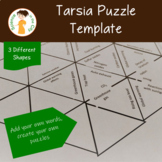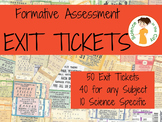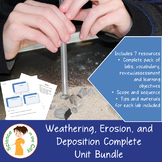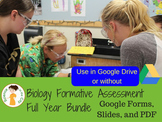The Importance of Formative Assessment
Formative assessment is a very important topic to me. When we are up at the front of the room teaching, it become easy for both us, and our students, to think that they understand what we are trying to teach. Then nod and say they understand, and we believe them. No one is being deceptive, but its hard to determine.
I think it is critical to use formative assessment very frequently. That may be assessments of prior knowledge when starting a topic, or an assessment during or at the end of a lesson. I have written before several times about formative assessment, in terms of warm ups, bell work, tickets out, or even station work that reviews and assesses knowledge on a few lessons at a time. You can read those earlier posts
here, or
here :) I think the particular way in that you choose to do formative assessment depends on your classroom routines and structure, but it is SOO important, for both yourselves and your students to have frequent checks on their understanding.
Grading Formative Assessment
When my school started using chromebooks, I made my daily warm ups in Google Forms. I wrote
here, about how I was able to grade work efficiently. Whether you grade formative assessment for completion or only for effort is a topic for a whole other post (or several). In my district, I found that students were less likely to complete it and take it seriously if it wasn't graded, but I never gave less than half credit unless refused to do it.
So How Can I Make This Easier For You?
Does it seem like a lot of work to make up formative assessment questions on an almost daily basis? It is! But the good news is, the work is done for you. I have created a year long bundle of formative assessments. These are available in a large bundle of 10 units, 18 assessments each, and a bonus pack, or individually. Here are a few points of information:
- The units are correlated to my year long Biology Course Objectives, to ensure that all objectives are addressed.
- Each slide or form has 2-5 brief questions that should take students approximately 3-8 minutes to complete.
- Each unit is available in Google Forms, Google Slides (to be projected or used as digital task cards), and PDF
The full preview and description is
here
Because of all the options available, the teacher (you) has a lot of easy options for differentiation.
I hope these are a helpful to you as you work with your students. Please feel free to
email me with any comments or suggestions, or to comment below. I'd love to hear your thoughts.






















